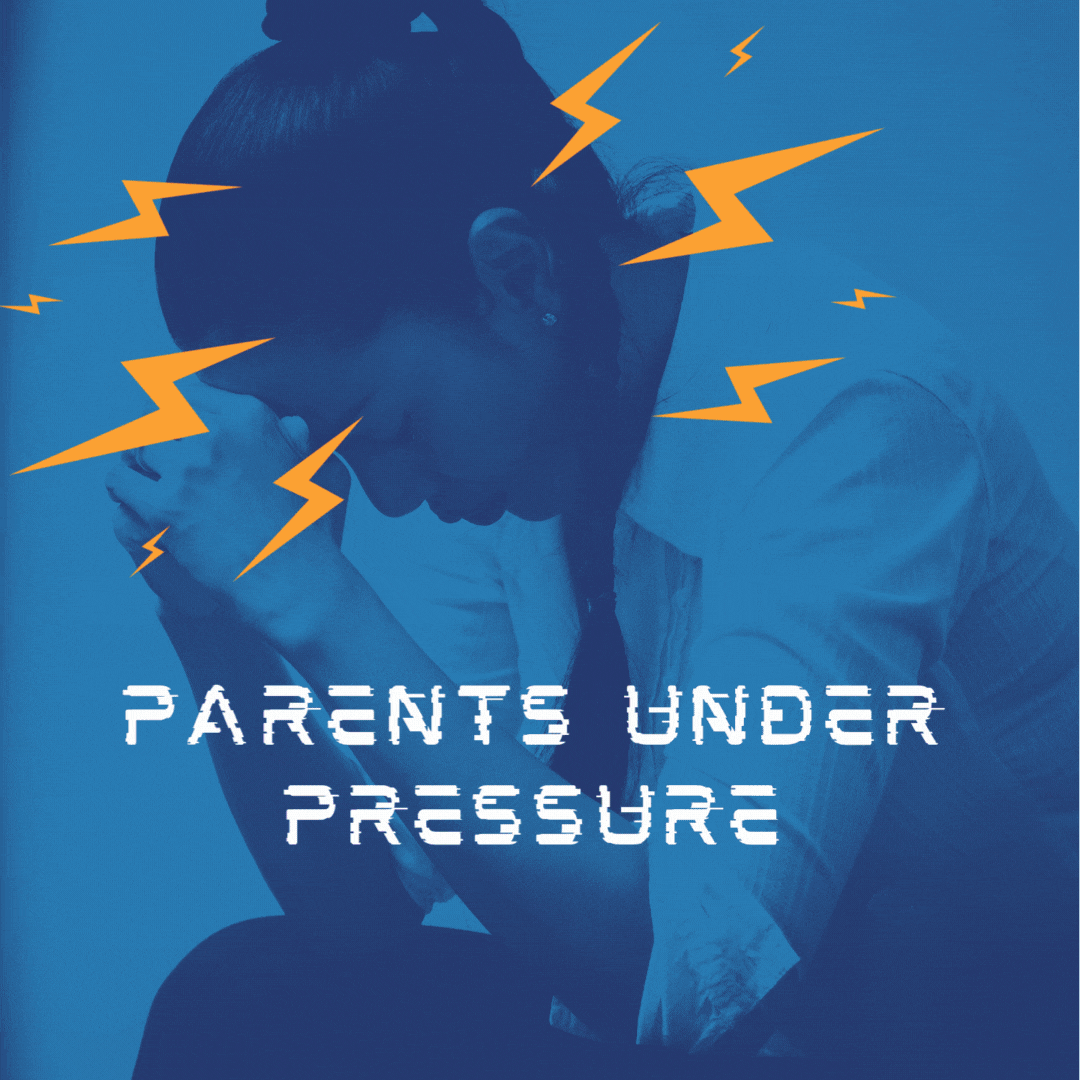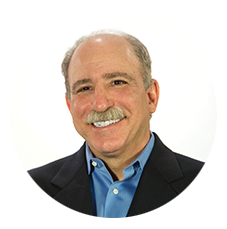
24 Sep The Mental Health and Well-Being of Parents (The Surgeon General’s Advisory)
On August 28th the US Surgeon General, Dr. Vivek Murthy issued an Advisory on the mental health and well-being of parents with emphasis on the urgent need for better support for parents, caregivers, and families “to help our communities thrive.” Click here to read the Surgeon General’s Advisory.
ACCORDING TO THE SURGEON GENERAL
33% of Parents have been reporting increased high levels of stress compared to 20% of other adults over the last decade. This prolonged or frequent stress has adverse effects on parents and the well-being of their children.
“Parents have a profound impact on the health of our children and the health of society. Yet parents and caregivers today face tremendous pressures, from familiar stressors such as worrying about their kids’ health and safety and financial concerns, to new challenges like navigating technology and social media, a youth mental health crisis, an epidemic of loneliness that has hit young people the hardest. As a father of two kids, I feel these pressures too. With this Advisory, I am calling for a fundamental shift in how we value and prioritize the mental health and well-being of parents. I am also outlining policies, programs, and individual actions we can all take to support parents and caregivers.” said U.S. Surgeon General Dr. Vivek Murthy.
ACCORDING TO DOC POP
We asked Doc Pop (Dr. Michael Popkin) to talk about some of the key takeaways from the Surgeon General’s Advisory. This is what he had to say:
I’m very grateful for the surgeon general’s spotlight on this issue. Parenting is too important and challenging a job to be done without the support of communities and government. Throughout this blog, I will highlight some of the key points from the thirty-five page Advisory and comment on them from an Active Parenting viewpoint. I’ll also provide some tips for combatting parenting stress, that I hope our Parent Educators will share with the parents they work with.
~ Parent Educators, share these tips with your parents—click here for your FREE downloadable Flyer ~
Parenting and Modern Stressors
Being a parent is one of the most rewarding experiences in life, but it can also be incredibly challenging. The constant demands of raising children can take a toll on our mental and physical health. The addition of modern stressors has pushed parents over the tipping point and prompted the Surgeon General’s Advisory. It’s no surprise that parents’ mental health has taken a hit with modern stressors like:
- Firearm Violence: The constant fear of gun violence in schools and public spaces weighs heavily on all of us, but especially parents. It can manifest as anxiety, insomnia, and difficulty concentrating.
- Loneliness & Isolation: Working from home, busy schedules, and the decline of traditional support systems can leave parents feeling disconnected. Loneliness can exacerbate stress and depression.
- Social Media’s Impact: We worry about the ever-present influence of social media, its unrealistic portrayal of life, how this can negatively affect our children’s self-esteem and behavior. We grapple with cyberbullying and the pressure to constantly monitor their digital lives.
“The well-being of parents and caregivers is a critical and underappreciated public health priority.”
Key Points from the Surgeon General’s Advisory:
There are important cultural shifts needed in order to make parenting sustainable and to enable parents and caregivers to thrive. (Advisory, p.21)
When I first set out to write the original Active Parenting program in 1980, I began by considering a statement or purpose for the job of parenting. I came up with this: To protect and prepare our children to survive and thrive in the kind of society in which they will live. In the over 40 years since then, I have not seen the need to change it more than a word or two. In fact, in time I came to believe that this has always been the purpose of parenting. The circumstances in which parents do this vital work and those in which our children may live constantly change, but our purpose remains the same. Fortunately, the concepts and skills we teach in Active Parenting courses remain effective in any democratic society. How we apply them in our more stressful modern world, however, needs to change to align with our current circumstances.
“it’s time to value and respect time spent parenting on par with time spent working at a paying job, recognizing the critical importance to society of raising children.”
Creating opportunities for parents and caregivers to come together, share experiences and ideas, and support each other can strengthen parental well-being. Simply put, caregivers need care, too. (Advisory, p.22)
We first introduced the topic of “Taking care of the caregiver” in 1998 in our program for young children, 1,2,3,4 Parents! (Now, Active Parenting: First Five Years) It resonated so well with parents and leaders that we have added it to revisions of our other programs. In addition, the very act of participating in an Active Parenting course provides self-care to the parents who come together with the common goal of learning how to better influence their children. Through this shared experience, many also find the support and nurturing they need from their group leader, their fellow parents, and the organization that sponsors their course. For some, this unexpected synergy is life-changing. For most, it is at least confidence-building, stress-reducing, and self-affirming. Many even find that the skills they learn to effectively parent their children can be used to help them become more effective in other areas of their lives, as well. As one parent put it,“Active Parenting didn’t just make me a better parent; it made me a better person.”
What National, Territorial, State, Local, and Tribal Governments Can Do.
Promote and expand funding for programs that support parents and caregivers and their families (Advisory, P.23)
Among the many recommendations listed in the advisory, it is not surprising that funding is the first. We have seen more and more Active Parenting leaders able to use government programs to find the funds to offer their courses. Those government administrations that truly support families have supported the organizations that have made parenting education, as well as other worthwhile programs, available to all parents regardless of their circumstances. It is encouraging to see so many of these groups in every corner of our country (and many places abroad) do such great work, and to know we have them as partners in parenting education.
Strengthen and establish school-based support programs.
“For example, local Early Head Start and Head Start programs offer group based, evidence informed classes for parents and caregivers of young children, such as those available from the National Center on Parent, Family, and Community Engagement” (Advisory, p.25)
Since I have a lifelong interest in parenting education, I read the Surgeon General’s advisory with one eye scouting for signs that it would call out parenting education as one of the recommended ways to reduce parental stress and promote healthy children and parents. I had to wait until page 25, and there it was in the Head Start example. When Head start revised its guidelines in 2016 to include “family engagement” for all of its centers, they also had the foresight to include parenting education courses as one of the ways centers could engage parents. We were already revising our program 1,2,3,4 Parents! into Active Parenting: First Five Years (2017) so our timing was perfect, and the course has turned out to be a perfect fit for Head Start centers around the country (as well as for other schools and organizations). You can find us on their list of evidence-based programs here:
Parenting Curricula Review Databases | Head Start Early Childhood Learning & Knowledge Center (from the US Department of Health & Human Services)
Then choose the link: Parenting Curricula for Group-based Delivery and scroll down to Active Parenting First Five Years.
What Health and Social Service Systems and Professionals Can Do
Prioritize preventive care.
… and equip parents with information around what to expect across various stages of parenting and childhood development (Advisory, p.26)
Recognizing the importance of understanding the stages of child development is useful at all ages. It helps prevent parents from expecting too much or too little of their children or teens and the frustration that comes with it. It can also help parents know when their child may have a developmental problem and should get evaluated for the help they may need.
This is one reason why we say “every stage, every step” as part of our Active Parenting logo. Both parents and their children need help at every stage and step of their journey. I would have liked to have seen the advisory go one step further and stress the importance of parents getting help with the actual knowledge and skills of effective parenting. So much of the frustration and stress that parents feel in their overall parenting experience can be reduced with some good training in skills like communication, encouragement, constructive discipline, and problem solving.
What Researchers Can Do
Conduct studies to better understand, prevent, and improve mental health conditions in parents and caregivers . . . including: Qualitative analyses, mixed methods research, and community-based participatory research to understand the experiences of parents and caregivers and their mental health challenges. Qualitative research methods (e.g., interviews, focus groups, observations, and content analysis) can be used to explore and understand the impact of nuanced behaviors like parenting on mental health. (Advisory, p.27)
I’m very glad to see this recommendation. I have a PhD. That’s a research degree among other things. I believe in the importance of demonstrating the evidence of effectiveness for prevention programs. This is why all of the Active Parenting programs since our first nationwide study in 1983 have research to support their effectiveness and why we go to great lengths to have our programs reviewed and included on important evidence-based lists.
However, it is very costly and time-consuming to develop randomized control group studies with human adults, let alone human adults and their children. Such experimentally controlled studies which are the norm in hard sciences like engineering where the term “stress” originated and could be precisely measured are much more difficult to ethically conduct with humans in which the concept of “Stress” has very human effects. We do it as best we can knowing that we cannot control all of the variables, nor measure all the positive changes that parents and children experience from a course. Much like one master teacher shared in a keynote address to other teachers, “The best of what we do cannot be measured.”
I am therefore glad to see this emphasis on qualitative analysis in the advisory. Such research rightly includes an analysis of what the parents and children (and group leaders) can tell us about their own experiences. After all, they are the ones who experience the stress of parenting, and the relief that a quality parenting education experience can bring.
Active Parenting Tools for Combatting Parental Stress 
While we can’t control the world, we can control our response to it. Active Parenting principles can be a powerful tool in your mental health and well-being journey:
- Set Limits with Love: Establish clear expectations and boundaries for your children while fostering a warm, supportive environment. This consistency reduces stress and promotes a sense of security for everyone. The Active Parenting Tenet: FREEDOM WITHIN LIMITS is a good way to find balance by setting limits that expand as your child grows and is able to handle more responsibility.
- Practice Effective Communication: Use Active Communication to hear your child’s feelings, validate their experiences, and the use of “I” messages are key to healthy communication with your children. It is also important for parents to be clear and concise in their communications. This open dialogue creates a safe space for them to express concerns about violence, social pressures, and loneliness. Effective communication can help to reduce stress and conflict in the parent-child relationship, which can improve mental well-being for both parties.
- Focus on Solutions, Not Blame: When challenges arise, address them calmly and collaboratively. Active Parenting teaches parents how to help their children develop problem-solving skills. This means working with your child to find solutions to problems rather than simply telling them what to do. Problem-solving skills are essential for mental well-being, as they help us to cope with stress and challenges in a healthy way. This empowers your children and strengthens your bond.
- Encouragement: Active Parenting teaches parents to focus on their child’s positive behavior rather than discipline alone. This means acknowledging your child for what they do right and offering encouragement when they are struggling. Positive messages from a parent, whether words, tone of voice, facial expressions or touch, helps to build your child’s self-esteem and confidence, which can lead to better behavior and mental health for both you and your child.
- Every Day a Little Play: Make time every day to spend quality, fun time with your children, because T-I-M-E is how kids spell LOVE. Even just 15 minutes out of a busy day can go a long way to strengthen bonds and ease stress for both parents and children. Here are some ways to do this: have fun bath time or read before bed with younger kids or play imagination games at dinner “If I had a superpower . . .” or another fun way to check in with older kids. This time spent can be a good gauge of how your children are doing.
- Take Care of Yourself: You can’t pour from an empty cup. Prioritize getting enough sleep, healthy eating, and activities you enjoy. Schedule time for self-care, even if it’s just 15 minutes. This will make you a more patient and effective parent.
- Connect with Other Parents: Combat loneliness by building a support network. Join a parents’ group or find a friend to share parenting experiences and concerns with.
Addressing Specific Stressors:
- Firearm Violence: Talk to your children about gun safety openly and honestly according to their age. Advocate for gun violence prevention measures. Let them know you’re working to keep them safe. Parents can help older children and teens take positive action. Ask what we can do to help prevent events like this from happening again, or to protect ourselves and each other if they do. This may lead to talks about anything from safety plans to political activism to influence our leaders to take preventative action.
- Social Media: Have open conversations about social media use, again, according to their age. Set limits on screen time and discuss online safety. Encourage and teach your children to be critical consumers of information online.
- Loneliness & Isolation: Seek out opportunities for social interaction. Many online groups and communities cater specifically to parents. Consider therapy as a source of support and guidance.
Remember: You are not alone. Active Parenting resources and techniques can help you navigate these challenges and build a strong, supportive family environment. By prioritizing your own well-being, you can better support your children’s mental health and well-being in this difficult world.
Let’s face it, being a parent is never easy. By working together and prioritizing our mental health, we can create a more peaceful and supportive environment for ourselves and our children.
Additional Resources:
- Active Parenting Resources:
- Parenting Classes: In-person or virtual
- Parents Guides for Every Stage. Every Step:
- Active Parenting: First Five Years Parent’s Guide
- Active Parenting 4th Ed. Parent’s Guide (Parent’s Guide & Workbook)
- Active Parenting of Teens Parent’s Guide
- Cooperative Coparenting through Separation or Divorce Parent’s Guide
- From the Surgeon General:
- The Jed Foundation – The Jed Foundation is a nonprofit that protects emotional health and prevents suicide for our nation’s teens and young adults, giving them the skills and support they need to thrive today…and tomorrow.
- National Alliance on Mental Illness (NAMI) – NAMI is the National Alliance on Mental Illness, the nation’s largest grassroots mental health organization dedicated to building better lives for the millions of Americans affected by mental illness.

Active Parenting Publishers founder and president Michael H. Popkin, Ph.D. has been providing research-based education programs with an emphasis on nonviolent discipline, mutual respect, and open communication for 40 years. He is widely known for his expertise in the field of parent education and has appeared on over 100 TV programs, including CNN and The Oprah Winfrey Show.
STAY IN TOUCH!
Click here to receive the latest news and offers from Active Parenting! And follow us on social media:

